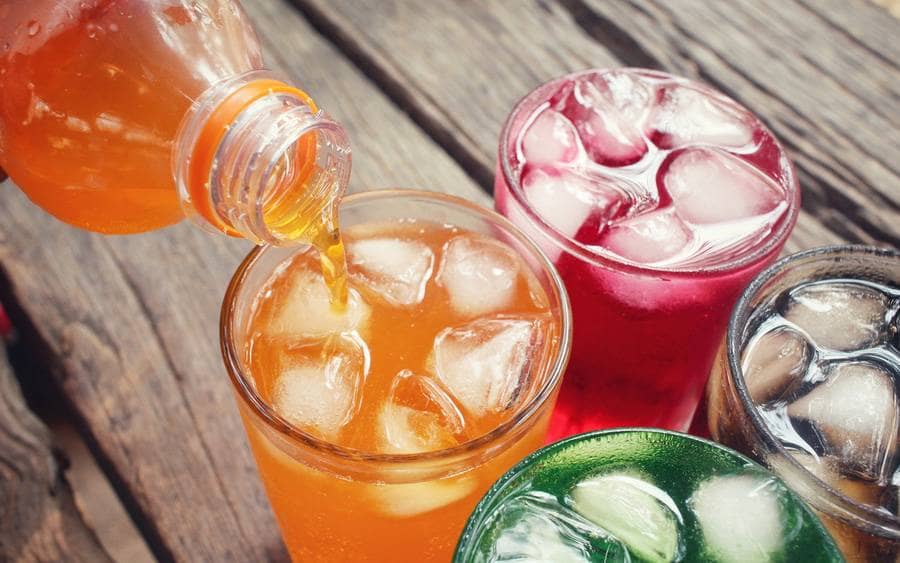
CLICK HERE TO JOIN OUR WHAT’S APP GROUP
Sugary Beverage Bill to Return to Parliament: Government Targets NCDs
The government of Antigua and Barbuda is set to reintroduce the Sugary Beverage Act for its second reading in Parliament, as part of its ongoing effort to reduce non-communicable diseases (NCDs) through legislation and public health programmes.
Speaking at the weekly post-Cabinet briefing, Director General in the Office of the Prime Minister, Maurice Merchant, confirmed that the legislation—first introduced months ago—is expected to be passed during the upcoming parliamentary session.
The bill seeks to impose measures that disincentivise the consumption of sugar-sweetened beverages, including the possibility of new taxes. Officials say this is part of a broader public health strategy to tackle rising levels of diabetes, obesity, and dental decay, particularly among young people.
“Sugar is very addictive,” Merchant said. “Once young people get a taste, they want it over and over again. And without good dental practices, this leads to long-term problems.”
In addition to the legislative push, the Cabinet has approved a national dental programme targeting school-aged children.
Starting in the new school year this September, the Ministry of Health will roll out fluoride rinses and dental sealant applications in all schools.
The initiative follows findings from a recent health fair, which revealed alarmingly high rates of cavities among children.

Officials also cited the high cost of dental care as a barrier for many families, noting that early prevention is both more effective and more affordable.
“This is about protecting the only teeth they’ll grow—and making sure they last a lifetime,” Merchant said.
The proposed tax on sugary drinks would align Antigua and Barbuda with similar measures already implemented in other Caribbean territories and is expected to be welcomed by public health advocates.
No specific rate or tax structure has yet been disclosed, but the Ministry of Health is reportedly working on the final details in preparation for the bill’s passage.
CLICK HERE TO JOIN OUR WHAT’S APP GROUP
CLICK HERE TO JOIN OUR WHAT’S APP GROUP
CLICK HERE TO JOIN OUR WHAT’S APP GROUP
CLICK HERE TO JOIN OUR WHAT’S APP GROUP
CLICK HERE TO JOIN OUR WHAT’S APP GROUP
CLICK HERE TO JOIN OUR WHAT’S APP GROUP
CLICK HERE TO JOIN OUR WHAT’S APP GROUP
CLICK HERE TO JOIN OUR WHAT’S APP GROUP
CLICK HERE TO JOIN OUR WHAT’S APP GROUP
Advertise with the mоѕt vіѕіtеd nеwѕ ѕіtе іn Antigua!
We offer fully customizable and flexible digital marketing packages.
Contact us at [email protected]
















I totally agree the too much soda and sugary drinks is not healthy. However some parents can’t buy juice be cause they too expensive.
So before we jump to tax those sugary beverages heavily how about we start by making healthy juice more affordable.
I gal bottle orange juice in the supermarket cost close to $50. How many parents can afford that with a wage of $9 and hour and the government taxes have not been taken out yet. Buy the time tax come out you lucky to even get $316 per week to take home. And if you working private companies it’s even worse because the private sector tax rate is higher than the government tax rate.
Have no problem with introducing a tax on these unhealty sugary drinks, just hope you all will use good sense and reduce the price on healthy ones so the poor and ordinary can afford to purchase them. Just show us how much you really care
@Concerned Parents
You don’t understand. This is going nowhere. All this legislation talk is just talk. They all know that. Some even involved.
Check out who is importing all the sugary drinks. You think that will stop?
Business is too big.
It is like all this talk about obese children eating too much snack and processed food. Who is importing the snack and processed food? Do you see any effort being made to get them to eat healthier?
Even in the schools, what are the children eating during break? What are their parents putting in their lunch bags to eat?
When we start to be honest about all this is when we will start to fix the problem.
How the hell I have to pay $375 for car and now haffu pay tax fu drink little soda
Cannot legislate morality
All that will happen is that smuggling and corruption in customs will increase. At the moment the Syrians are controlling the soft drink market with smuggled and counterfeit products. This is an open secret and no one cares. Customs officers live in million dollar properties with 3 and 4 high end vehicles and no one questions how this is possible on a civil servant salary. So Molwyn stop wasting Parliament’s time with this useless bill.
I wonder, are there any islands or countries that we can look at that increased the taxes on sugary beverages and saw a decrease in the sale of them? I am not a consumer of sugary drinks so it doesn’t really matters to me. But I think that the only way to stop people from consuming all these sugar is by education. And remember it is hard to teach an old dog new tricks, so start with the young ones. When you are educated about the danger you do to yourself later in life you will and can make informed decision. And that is so with lots of things. Like smoking and drinking alcohol consumption.
I wonder, are there any islands or countries that we can look at that increased the taxes on sugary beverages and saw a decrease in the sale of them? I am not a consumer of sugary drinks so it doesn’t really matters to me. But I think that the only way to stop people from consuming all these sugar is by education. And remember it is hard to teach an old dog new tricks, so start with the young ones. When you are educated about the danger you do to yourself later in life you will and can make informed decision. And that is so with lots of things. Like smoking and drinking alcohol consumption. .
I don’t see why we have aught with taxes for sugary drinks. Tax dem. There are so many local fruits that are always in season that we can use, especially tamarind. Drink local.
Sugar is killing everyone and everything. I hope this help reduce the kidney diseases and diabetes amount our population
Comments are closed.